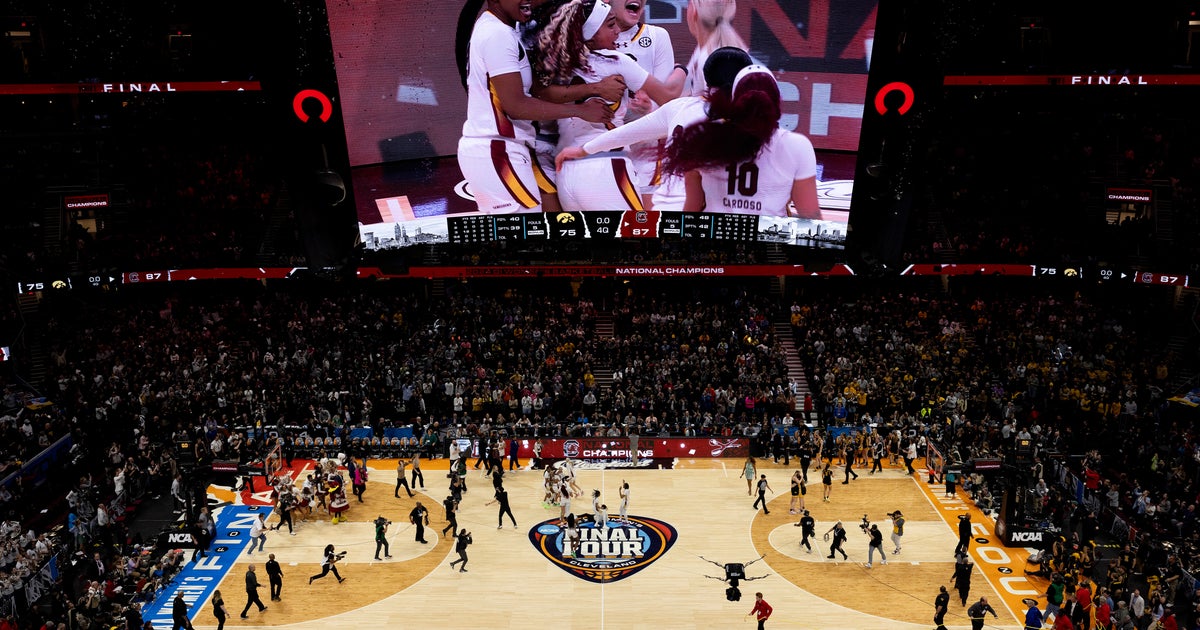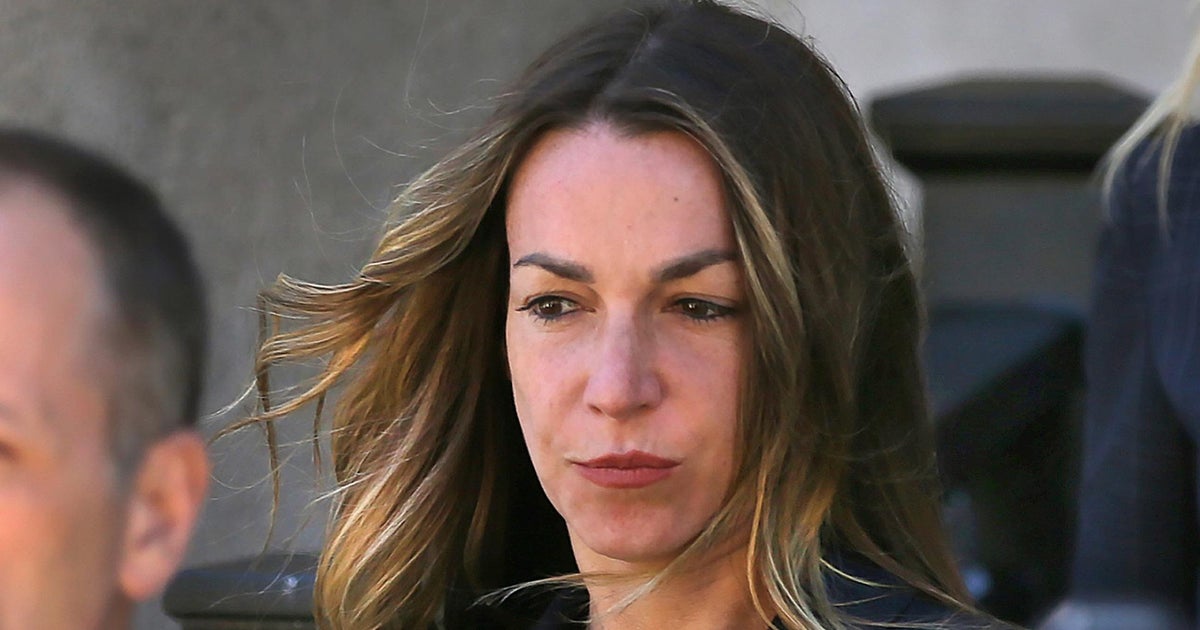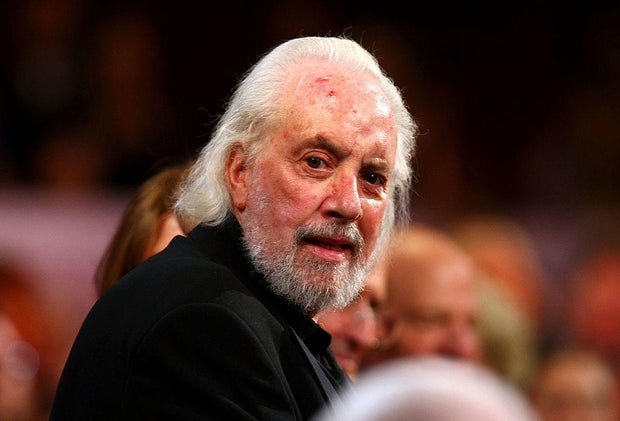CBS News
NCAA, leagues sign off on nearly $3 billion plan to set stage for dramatic change across college sports

The NCAA and the nation’s five biggest conferences have agreed to pay nearly $2.8 billion to settle a host of antitrust claims,a monumental decision that sets the stage for a groundbreaking revenue-sharing model that could start directing millions of dollars directly to athletes as soon as the 2025 fall semester.
The Pac-12 became the final conference to sign off on the proposal Thursday when its university leaders voted to approve, according to a person with direct knowledge of the results.
The Southeastern Conference presidents and chancellors unanimously approved the deal earlier Thursday, another person with knowledge of that decision told The Associated Press. Both spoke spoke on condition of anonymity because an official announcement between the Pac-12, SEC, Big Ten, Big 12, Atlantic Coast Conference and NCAA was still being prepared.
The other organizations voted to approve earlier in the week ahead of a Thursday deadline given by the plaintiffs’ attorneys.
The deal still must be approved by the federal judge overseeing the case and challenges could arise, but if the agreement stands it will mark the beginning of a new era in college sports where athletes are compensated more like professionals and schools can compete for talent using direct payments.
The details in the plan signal the end of the NCAA’s bedrock amateurism model that dates to its founding in 1906. Indeed, the days of NCAA punishments for athletes driving booster-provided cars started vanishing three years ago when the organization lifted restrictions on endorsement deals backed by so-called name, image and likeness money.
Now it is not far-fetched to look ahead to seasons where a star quarterback or top prospect on a college basketball team are not only cashing in big-money NIL deals but have a $100,000 school payment in the bank to play.
There are a host of details still to be determined, but the agreement calls for the NCAA and the conferences to pay $2.77 billion over 10 years to more than 14,000 former and current college athletes who say now-defunct rules prevented them from earning money from endorsement and sponsorship deals dating to 2016.
Some of that money will come from NCAA reserve funds and insurance but even though the lawsuit specifically targeted five conferences that are comprised of 69 schools (including Notre Dame), dozens of other NCAA member schools will see smaller distributions from the NCAA to cover the mammoth payout.
Schools in the Big Ten, Big 12, Atlantic Coast and Southeastern conferences will end up bearing the brunt of the settlement at a cost of about $300 million each over 10 years, the majority of which will be paid to athletes going forward.
The Pac-12 is also part of the settlement, with all 12 sharing responsibility even though Washington State and Oregon State will be the only league members left by this fall after the other 10 schools leave.
In the new compensation model, each school will be permitted but not required to set aside up to $21 million in revenue to share with athletes per year, though as revenues rise so could the cap.
Athletes in all sports would be eligible for payments and schools would be given the freedom to decide how that money is divvied up among sports programs. Scholarship limits by sport will be replaced by roster restrictions.
Whether the new compensation model is subject to the Title IX gender equity law is unknown along with whether schools will be able to bring NIL activities in-house as they hope and squeeze out the booster-run collectives that have sprouted up in the last few years to pay athletes. Both topics could lead to more lawsuits.
The class-action federal lawsuit at the center of the settlement, House v. the NCAA, was set to go to trial in January. The complaint, brought by former Arizona State swimmer Grant House and Sedona Prince, a former Oregon and current TCU basketball player, said the NCAA, along with the five wealthiest conferences, improperly barred athletes from earning endorsement money.
The suit also made the case that athletes were entitled to a piece of the billions of dollars the NCAA and those conferences earn from media rights agreements with television networks.
Amid political and public pressure, and facing the prospect of another court loss that some in college sports claimed could reach $20 billion in damages, NCAA and conference officials conceded on what has long been a core principal of the enterprise: That schools don’t directly pay the athletes to play beyond a scholarship.
That principle had already been dented numerous times over the last decade.
Notably, the Supreme Court unanimously ruled against the NCAA in 2021 in a case related to education-related benefits. The narrow focus of the Alston case didn’t collapse the collegiate sports system, but the strong rebuke of the NCAA’s model of amateurism flung the door open to more lawsuits. Justice Brett Kavanaugh, a former Yale athlete, put it bluntly: “The bottom line is that the NCAA and its member colleges are suppressing the pay of student athletes who collectively generate billions of dollars in revenues for colleges every year.”
The settlement is expected to cover two other antitrust cases facing the NCAA and major conferences that challenge athlete compensation rules. Hubbard vs. the NCAA and Carter vs. the NCAA are also currently in front of judges in the Northern District of California.
A fourth case, Fontenot vs, NCAA, creates a potential complication as it remains in a Colorado court after a judge denied a request to combine it with Carter. Whether Fontenot becomes part of the settlement is unknown and it matters because the NCAA and its conferences don’t want to be on the hook for more damages should they lose in court.
“We’re going to continue to litigate our case in Colorado and look forward to hearing about the terms of a settlement proposal once they’re actually released and put in front of a court,” said George Zelcs, a plaintiffs’ attorney in Fontenot.
The solution agreed to in the settlement is landmark, but not surprising. College sports has been trending in this direction for years, with athletes receiving more and more monetary benefits and rights they say were long overdue.
In December, NCAA President Charlie Baker, the former Massachusetts governor who has been on the job for 14 months, proposed creating a new tier of Division I athletics where the schools with the most resources would be required to pay at least half their athletes $30,000 per year. That suggestion, along with many other possibilities, remain under discussion.
The settlement does not make every issue facing college sports go away. There is still a question of whether athletes should be deemed employees of their schools, something Baker and other college sports leaders are fighting against.
Some type of federal legislation or antitrust exemption is likely still needed to codify the terms of the settlement, protect the NCAA from future litigation and pre-empt state laws that attempt to neuter the organization’s authority. As it is, the NCAA is still facing lawsuits that challenge its ability to govern itself, including setting rules limiting multiple-time transfers.
Federal lawmakers have indicated they would like to get something done, but while several bills have been introduced none have gone anywhere.
Despite the unanswered questions, one thing is clear: Major college athletics is about to become more like professional sports than ever before.
CBS News
7/2: CBS Evening News – CBS News

Watch CBS News
Be the first to know
Get browser notifications for breaking news, live events, and exclusive reporting.
CBS News
Robert Towne, legendary Hollywood screenwriter of “Chinatown,” dies at 89

Robert Towne, the Oscar-winning screenplay writer of “Shampoo,” “The Last Detail” and other acclaimed films whose work on “Chinatown” became a model of the art form and helped define the jaded allure of his native Los Angeles, has died. He was 89.
Towne “passed away peacefully surrounded by his loving family” Monday at his home in Los Angeles, his publicist Carri McClure, told CBS News in a statement. She did not provide a cause of death.
In an industry which gave birth to rueful jokes about the writer’s status, Towne for a time held prestige comparable to the actors and directors he worked with. Through his friendships with two of the biggest stars of the 1960s and ’70s, Warren Beatty and Jack Nicholson, he wrote or co-wrote some of the signature films of an era when artists held an unusual level of creative control. The rare “auteur” among screen writers, Towne managed to bring a highly personal and influential vision of Los Angeles onto the screen.
Alberto E. Rodriguez/Getty Images for AFI
“It’s a city that’s so illusory,” Towne told The Associated Press in a 2006 interview. “It’s the westernmost west of America. It’s a sort of place of last resort. It’s a place where, in a word, people go to make their dreams come true. And they’re forever disappointed.”
Recognizable around Hollywood for his high forehead and full beard, Towne won an Academy Award for “Chinatown” and was nominated three other times, for “The Last Detail,” “Shampoo” and “Greystoke.” In 1997, he received a lifetime achievement award from the Writers Guild of America.
“His life, like the characters he created, was incisive, iconoclastic and entirely (original),” said “Shampoo” actor Lee Grant on X.
Towne was born Robert Bertram Schwartz in Los Angeles and moved to San Pedro after his father’s business, a dress shop, closed down because of the Great Depression. His father changed the family name to Towne.
Towne’s success came after a long stretch of working in television, including “The Man from U.N.C.L.E” and “The Lloyd Bridges Show,” and on low-budget movies for “B” producer Roger Corman. In a classic show business story, he owed his breakthrough in part to his psychiatrist, through whom he met Beatty, a fellow patient. As Beatty worked on “Bonnie and Clyde,” he brought in Towne for revisions of the Robert Benton-David Newman script and had him on the set while the movie was filmed in Texas.
Towne’s contributions were uncredited for “Bonnie and Clyde,” the landmark crime film released in 1967, and for years he was a favorite ghost writer. He helped out on “The Godfather,” “The Parallax View” and “Heaven Can Wait” among others and referred to himself as a “relief pitcher who could come in for an inning, not pitch the whole game.” But Towne was credited by name for Nicholson’s macho “The Last Detail” and Beatty’s sex comedy “Shampoo” and was immortalized by “Chinatown,” the 1974 thriller set during the Great Depression.
“Chinatown” was directed by Roman Polanski and starred Nicholson as J.J. “Jake” Gittes, a private detective asked to follow the husband of Evelyn Mulwray (played by Faye Dunaway). The husband is chief engineer of the Los Angeles Department of Water and Power and Gittes finds himself caught in a chaotic spiral of corruption and violence, embodied by Evelyn’s ruthless father, Noah Cross (John Huston).
Influenced by the fiction of Raymond Chandler, Towne resurrected the menace and mood of a classic Los Angeles film noir, but cast Gittes’ labyrinthine odyssey across a grander and more insidious portrait of Southern California. Clues accumulate into a timeless detective tale, and lead helplessly to tragedy, summed up by one of the most repeated lines in movie history, words of grim fatalism a devastated Gittes receives from his partner Lawrence Walsh (Joe Mantell): “Forget it, Jake, it’s Chinatown.”
The back story of “Chinatown” has itself become a kind of detective story, explored in producer Robert Evans’ memoir, “The Kid Stays in the Picture”; in Peter Biskind’s “East Riders, Raging Bulls,” a history of 1960s-1970s Hollywood, and in Sam Wasson’s “The Big Goodbye,” dedicated entirely to “Chinatown.” In “The Big Goodbye,” published in 2020, Wasson alleged that Towne was helped extensively by a ghost writer — former college roommate Edward Taylor. According to “The Big Goodbye,” for which Towne declined to be interviewed, Taylor did not ask for credit on the film because his “friendship with Robert” mattered more.
The studios assumed more power after the mid-1970s and Towne’s standing declined. His own efforts at directing, including “Personal Best” and “Tequila Sunrise,” had mixed results. “The Two Jakes,” the long-awaited sequel to “Chinatown,” was a commercial and critical disappointment when released in 1990 and led to a temporary estrangement between Towne and Nicholson.
Around the same time, he agreed to work on a movie far removed from the art-house aspirations of the ’70s, the Don Simpson-Jerry Bruckheimer production “Days of Thunder,” starring Tom Cruise as a race car driver and Robert Duvall as his crew chief. The 1990 movie was famously over budget and mostly panned, although its admirers include Quentin Tarantino and countless racing fans. And Towne’s script popularized an expression used by Duvall after Cruise complains another car slammed him: “He didn’t slam into you, he didn’t bump you, he didn’t nudge you. He rubbed you.
“And rubbin,′ son, is racin.'”
Towne later worked with Cruise on “The Firm” and the first two “Mission: Impossible” movies. His most recent film was “Ask the Dust,” a Los Angeles story he wrote and directed that came out in 2006. Towne was married twice, the second time to Luisa Gaule, and had two children. His brother, Roger Towne, also wrote screenplays, his credits include “The Natural.”
CBS News
Analyzing impact of Supreme Court’s Trump immunity decision

Watch CBS News
Be the first to know
Get browser notifications for breaking news, live events, and exclusive reporting.









